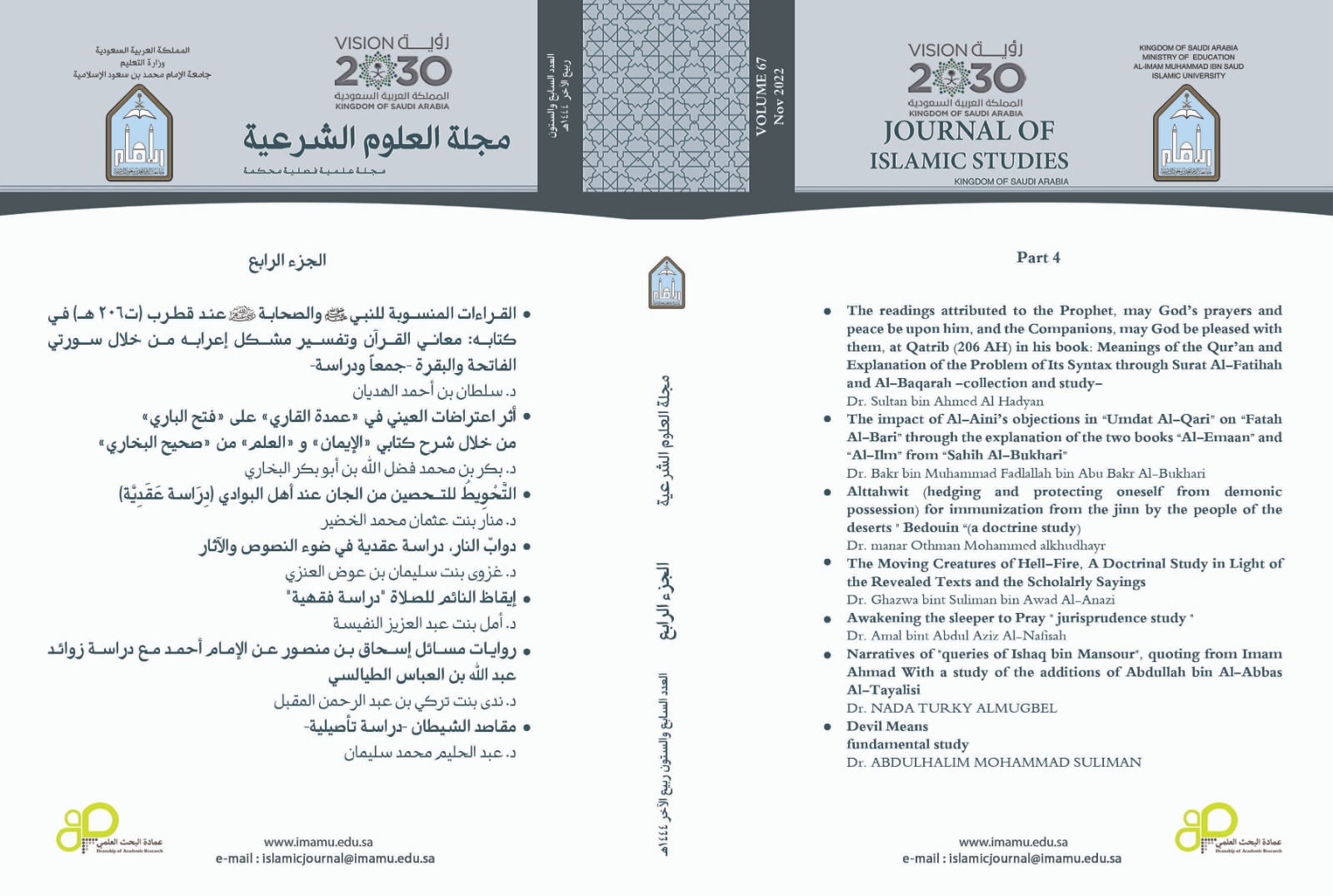The Rhetorical Connotations of the Command on At-Tamattu' and Al-Tamti' in the Glorious Qur'an
Keywords:
Command of at-tamattu‘, Command of at-tamtī‘,, Rhetoric of the Qur‘ān, Deviation of commandAbstract
The research discussed item (mata‘a) in its command form in the Glorious Qur‘ān and studied this item in the mentioned form rhetorically to find the contexts in which it appeared in the Glorious Qur‘ān. The research contained a preface and three topics. The preface discussed the definition of at-tamattu‘ in the lexical sense, and command form generally. The first topic discussed the form of at-tamattu‘ in the Glorious Qur‘ān generally in its entire linguistic derivations both nominal and verbal, and it noted the significant places where it appeared in the Glorious Qur‘ān and its contexts of usage. The second topic discussed the statement on command of at-tamattu‘ in the Glorious Qur‘ān by counting its places and studying the contexts. The third topic discussed the command on at-tamtī‘in the Glorious Qur‘ān following the same approach as the previous topic, by counting the places and a rhetoric analysis.
The study revealed several findings, including that the command on at-tamattu‘ appeared in the Qur‘ān in eight places. All of which deviated from the default connotation of command, which is an obligation, the connotations that it deviated to are: threatening, warning, permission, incapacitation, and rebuking. However, as for the command on at-tamtī‘, it only existed in one scenario for a man when he is divorcing his wife. With the requirement of dowry and leaving the wife unharmed, this appeared in two places and both retained the default connotation of command, which is an obligation, based on what is most preponderant.




